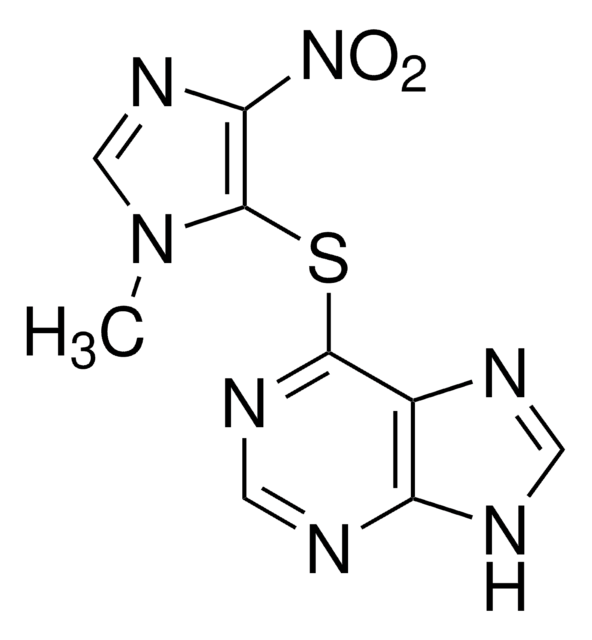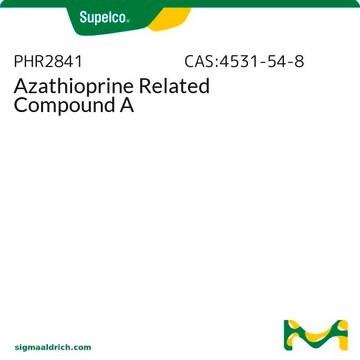1046001
USP
Azathioprine
United States Pharmacopeia (USP) Reference Standard
Synonym(s):
6-(1-Methyl-4-nitroimidazol-5-yl)thiopurine
About This Item
Recommended Products
grade
pharmaceutical primary standard
API family
azathioprine
manufacturer/tradename
USP
application(s)
pharmaceutical (small molecule)
format
neat
storage temp.
2-8°C
SMILES string
Cn1cnc(c1Sc2ncnc3[nH]cnc23)[N+]([O-])=O
InChI
1S/C9H7N7O2S/c1-15-4-14-7(16(17)18)9(15)19-8-5-6(11-2-10-5)12-3-13-8/h2-4H,1H3,(H,10,11,12,13)
InChI key
LMEKQMALGUDUQG-UHFFFAOYSA-N
Gene Information
human ... PPAT(5471)
Looking for similar products? Visit Product Comparison Guide
General description
Application
- Azathioprine Tablets
- Azathioprine Sodium for Injection
- Azathioprine Compounded Oral Suspension
Analysis Note
Other Notes
related product
signalword
Danger
Hazard Classifications
Acute Tox. 4 Oral - Carc. 1B - Eye Irrit. 2 - Repr. 2 - Skin Irrit. 2 - STOT SE 3
target_organs
Respiratory system
Storage Class
6.1C - Combustible acute toxic Cat.3 / toxic compounds or compounds which causing chronic effects
wgk_germany
WGK 3
flash_point_f
Not applicable
flash_point_c
Not applicable
Choose from one of the most recent versions:
Certificates of Analysis (COA)
Sorry, we don't have COAs for this product available online at this time.
If you need assistance, please contact Customer Support.
Already Own This Product?
Find documentation for the products that you have recently purchased in the Document Library.
Our team of scientists has experience in all areas of research including Life Science, Material Science, Chemical Synthesis, Chromatography, Analytical and many others.
Contact Technical Service






